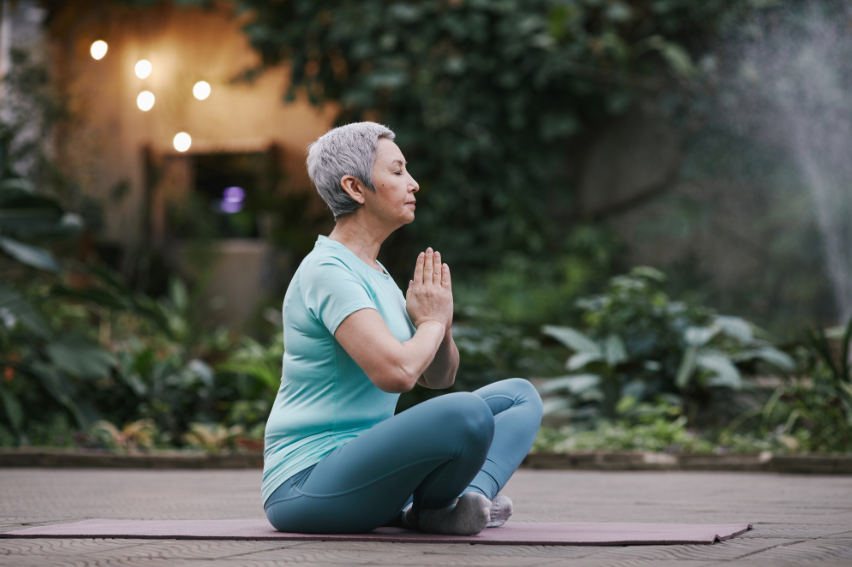Different Rehabilitation Strategies for Dementia
- Anuj Tiwari

- Jan 7
- 2 min read
Dementia is a progressive condition affecting memory, cognition, and physical abilities. While it is often addressed through psychological interventions, physiotherapists can play a vital role in a patient's comprehensive rehabilitation by addressing the physical and mental challenges associated with dementia.

Common Signs of Dementia
Memory Loss: Forgetting recently learned information, important dates, or events.
Communication Difficulties: Trouble finding the right words, following conversations, or understanding written or spoken language.
Problem-Solving Challenges: Difficulty with abstract thinking, decision-making, or judging space and line orientation.
Personality Changes: Becoming passive, suspicious, or withdrawn.
Mood Changes: Increased agitation, anxiety, or depression.
Disorientation: Difficulty understanding time, place, or situations.
Motor Function Changes: Trouble with coordination, balance, or movement.
A. Physiotherapeutic Interventions
Relaxation Techniques: Teaching methods such as deep breathing, progressive muscle relaxation, and yoga to manage stress and anxiety.
Exercise Programs: Tailored programs to enhance mood, reduce stress, and improve physical and mental well-being.
Sleep Hygiene: Educating patients on practices to improve sleep quality.
Pain Management: Addressing chronic pain that may contribute to emotional distress.
Mind-Body Connection: Using exercises to promote both mental and physical health.
Cognitive Behavioral Therapy (CBT):
Cognitive Restructuring: Identifying and challenging negative thought patterns.
Exposure and Response Prevention: Gradual exposure to shopping or triggering situations while resisting impulses.
Mindfulness-Based CBT: Practicing mindfulness to increase self-awareness and manage impulses.

B. Mental Activity for Dementia
Progressive Muscle Relaxation: Alternating tension and relaxation in different muscle groups to reduce physical stress.
Deep Breathing Exercises: Techniques to calm the mind and body.
Mindfulness Meditation: Increasing self-awareness and reducing stress.
Guided Imagery: Visualizing calming scenarios to ease anxiety.
C. Problem-Solving and Planning Activities
Budgeting and Finance Planning: Using tools like Mint or YNAB to track expenses.
Needs vs. Wants: Teaching patients to distinguish between necessities and desires.
Alternative Activities: Encouraging creative hobbies like drawing, painting, or music.
Goal Setting: Establishing achievable goals to improve focus and motivation.
D. Creative Expression and Self-Reflection
Journaling: Writing down thoughts and emotions to understand triggers and patterns.
Art Therapy: Using art as a therapeutic outlet.
Self-Reflection Exercises: Promoting self-awareness and personal growth.
Gratitude Practice: Reflecting on positive aspects of life to foster a positive mindset.
E. Morning Routine for Dementia
Mindfulness and Meditation (15–20 minutes)
Journaling (10–15 minutes)
Healthy Breakfast

F. Evening Routine for Dementia
Reflection and Review (10–15 minutes)
Gratitude Practice (5–10 minutes)
Relaxation Techniques
Preparation for Tomorrow
G. Daily Activities
Scheduled Shopping: Structured shopping routines to avoid impulsive decisions.
Alternative Hobbies: Activities such as exercise, painting, or gardening.
Social Connection: Building relationships to reduce isolation and improve mood.
Self-Care: Prioritizing sleep, balanced nutrition, and enjoyable hobbies.
H. Additional Tips
Avoid temptations.
Seek support from loved ones or professionals.
Celebrate milestones to acknowledge progress.
Practice self-compassion.
I. Collaboration with Other Healthcare Professionals
Psychologists/Psychiatrists: For cognitive and emotional support.
Occupational Therapists: To assist with daily tasks and routines.

Rehabilitation for dementia requires a multidisciplinary approach. Physiotherapists contribute significantly by addressing physical, mental, and emotional needs through tailored interventions. Collaboration with other healthcare professionals ensures a holistic recovery process, ultimately improving the patient’s quality of life.



Very useful & Informative 👍
You definitely did a great job 👏
Waiting for moree ..✍️
Very helpful.
Very Useful tips
Nice information in a simple language
Good